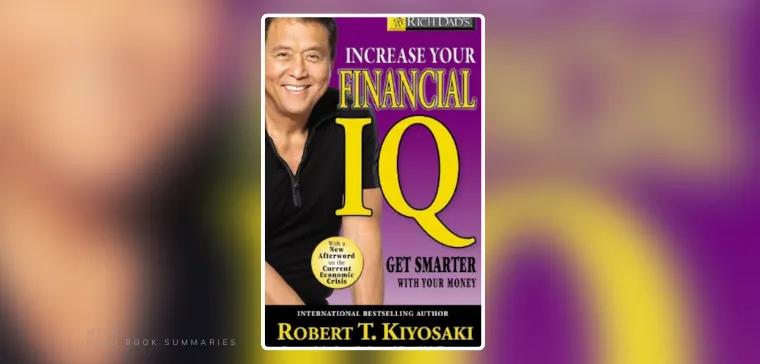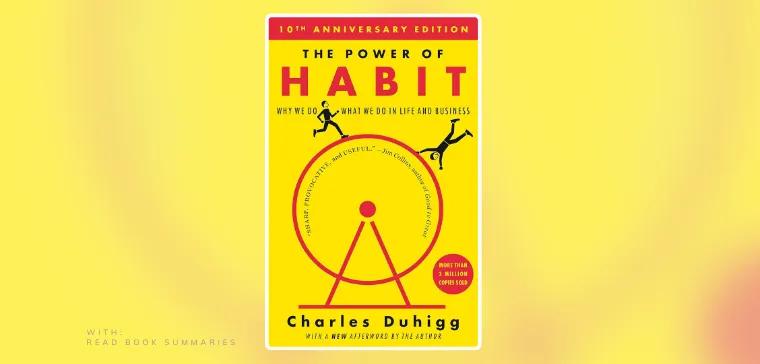

Unlocking the Secrets of Wealth: A Dive into "The Psychology of Money"
What if the key to financial success isn't about how much you know, but how you behave?
Morgan Housel's "The Psychology of Money" captivates readers with its profound insights into the emotional and psychological aspects of personal finance. In a world where financial literacy is often equated with complex equations and market strategies, Housel offers a refreshing perspective: "Financial success is not a hard science. It's a soft skill, where how you behave is more important than what you know."
By reading this summary, you'll uncover timeless lessons on wealth, greed, and happiness that Housel masterfully weaves through engaging stories and historical anecdotes. Discover why patience can eclipse intelligence in investing, and how the stories we tell ourselves about money shape our financial destinies.
Ready to transform your understanding of money? Dive into the full article and explore the fascinating world of financial psychology that could change your life.
Chapter: Introduction: The Greatest Show On Earth

In the introduction of "The Psychology of Money," Morgan Housel explores the intricate relationship between people and money. He begins by highlighting a fundamental truth: doing well with money isn't necessarily about intelligence but about behavior. This is vividly illustrated by the story of a tech executive who, despite his genius and wealth, squandered his fortune due to poor financial behavior. This anecdote shows how intelligence and financial success don't always go hand in hand.
The Unpredictability of Financial Success
Housel emphasizes that financial success is not a precise science but a soft skill, heavily influenced by behavior and psychology. He contrasts the stories of Ronald Read, a janitor who amassed a fortune through frugality and patience, with Richard Fuscone, a wealthy executive who went bankrupt due to excessive risk-taking. These stories illustrate that financial outcomes are often driven by behavior rather than knowledge or intelligence. For instance, while Read lived modestly and invested wisely, Fuscone's lavish lifestyle and high debt led to his downfall.
The Role of Luck and Behavior
The introduction also delves into the role of luck and risk in financial success. Housel argues that while luck plays a part, behavior is a more significant factor. He uses the analogy of a heart surgeon and a janitor to explain that, unlike other fields where skill and education are paramount, finance allows for success through behavioral traits like patience and restraint. This highlights the unique nature of money management, where soft skills can eclipse technical knowledge.
The Importance of Financial Psychology
Housel's introduction sets the tone for the book by underscoring the importance of understanding the psychology behind financial decisions. He suggests that many financial mistakes stem from a lack of appreciation for the psychological aspects of money. For example, people often make irrational decisions based on emotions rather than logic, such as selling investments during a market downturn due to fear. Understanding these psychological influences can lead to better financial decisions and outcomes.
In conclusion, the introduction invites readers to explore the behavioral aspects of finance, encouraging them to rethink their approach to money. By focusing on behavior rather than just knowledge, Housel promises insights that can help anyone make smarter financial choices.
Chapter 1: No One’s Crazy

In the first chapter, Housel explores the idea that everyone has a unique perspective on money, shaped by their personal experiences. This chapter emphasizes that what might seem irrational to one person can make perfect sense to another, given their background and life experiences.
Diverse Financial Perspectives
Housel illustrates how people from different backgrounds view money differently. For example, someone who grew up during a period of high inflation might be more cautious about saving, while someone who experienced a booming stock market in their youth might be more inclined to invest aggressively. These diverse experiences lead to varied financial behaviors, none of which are inherently crazy.
Consider two individuals: one who lived through the Great Depression and another who thrived during the tech boom of the 1990s. The former might prioritize saving and avoiding debt, while the latter might be more comfortable with risk and investment. Both approaches are rational within the context of their experiences.
The Influence of Personal History
Housel explains that our financial decisions are deeply influenced by our personal histories. He uses the example of lottery ticket buyers, who often come from lower-income backgrounds. To them, spending on lottery tickets is not just about gambling; it's about buying hope and a chance at a better life, which might seem irrational to someone with more financial security. This highlights the importance of understanding the personal narratives that drive financial choices.
Conclusion: Embracing Financial Diversity
The chapter concludes by encouraging readers to appreciate the diversity of financial perspectives. Recognizing that no one is truly crazy when it comes to money can foster empathy and understanding. This insight sets the stage for the rest of the book, which delves deeper into the psychological aspects of financial behavior.
Chapter 2: Luck & Risk

In Chapter 2, Housel delves into the intertwined roles of luck and risk in financial success and failure. He argues that while we often attribute success to skill and failure to poor decisions, the reality is more nuanced. Luck and risk are two sides of the same coin, influencing outcomes in ways that are often invisible and unpredictable.
The Role of Luck
Housel illustrates how luck can play a significant role in success. He uses the example of Bill Gates, who had the rare opportunity to access a computer at a young age, which was a pivotal factor in his success. This access was largely due to luck, as very few people had such opportunities at the time. While skill and hard work are important, luck can provide the opportunities that lead to extraordinary success.
Consider two equally talented individuals: one who meets a mentor who opens doors for them, and another who does not. The former might achieve great success, not solely because of their talent, but because of the lucky break they received.
The Impact of Risk
Conversely, Housel discusses how risk can lead to failure, even for those who are skilled and diligent. He shares the story of Richard Fuscone, a successful executive who lost everything during the 2008 financial crisis due to high leverage and illiquid assets. Risk can undermine even the most well-planned financial strategies, emphasizing the importance of acknowledging and managing risk.
An example of risk is investing heavily in a single stock. Even if the company is strong, unforeseen events like regulatory changes or market shifts can lead to significant losses. This underscores the need for diversification and caution in financial planning.
Conclusion: Balancing Luck and Risk
Housel concludes by urging readers to recognize the roles of luck and risk in their financial lives. Understanding that success is not solely due to skill and that failure is not always due to poor decisions can foster humility and resilience.
Chapter 3: Never Enough

In Chapter 3, Housel explores the concept of "enough" and how the relentless pursuit of more can lead to dissatisfaction and poor financial decisions. He argues that understanding what is "enough" is crucial for financial well-being and happiness.
The Dangers of Never Having Enough
Housel illustrates the dangers of never feeling like you have enough with the story of Rajat Gupta, a successful businessman who, despite his immense wealth, engaged in insider trading to gain even more. This decision ultimately led to his downfall, highlighting how the lack of a sense of "enough" can lead to risky and unethical behavior. Without a clear understanding of what is sufficient, people can make decisions that jeopardize their financial security and reputation.
Consider someone who constantly upgrades their lifestyle with every pay raise. They might buy a bigger house or a more expensive car, but this constant escalation can lead to financial strain and stress, as they never feel satisfied with what they have.
The Importance of Defining "Enough"
Housel emphasizes the importance of defining what "enough" means for each individual. He suggests that having a clear sense of what is sufficient can prevent the endless chase for more, which often leads to unhappiness. By setting personal limits and recognizing when you have enough, you can focus on what truly matters, such as relationships, health, and personal fulfillment.
For example, someone might decide that having a modest home and a reliable car is enough for them, allowing them to save more for retirement or spend time with family. This approach can lead to greater contentment and financial stability.
Conclusion: Finding Balance
The chapter concludes by encouraging readers to find a balance between ambition and contentment. Recognizing when you have enough can lead to a more fulfilling life, free from the pressures of constantly wanting more.
Chapter 4: Confounding Compounding

In Chapter 4, Housel explores the power and mystery of compounding, a concept that is both simple and profoundly impactful in finance. He argues that compounding is often misunderstood and underappreciated, despite being a fundamental driver of wealth accumulation.
The Astonishing Power of Compounding
Housel illustrates the power of compounding through the story of Warren Buffett. Buffett's immense wealth is not just a result of his investing acumen but also his ability to let his investments compound over a long period. Buffett's fortune is largely due to the fact that he started investing at a young age and continued for decades, allowing compounding to work its magic.
Imagine a snowball rolling down a hill. As it rolls, it picks up more snow, growing larger and larger. The longer it rolls, the bigger it gets, illustrating how compounding works over time.
The Misunderstanding of Compounding
Housel points out that many people fail to grasp the full potential of compounding because they focus on short-term gains rather than long-term growth. Compounding requires patience and a long-term perspective, which can be challenging in a world that often prioritizes immediate results. This misunderstanding can lead to missed opportunities, as people may not invest early enough or may withdraw their investments too soon.
For instance, someone might invest in the stock market expecting quick returns. When they don't see immediate gains, they might pull out their money, missing out on the exponential growth that compounding could have provided over time.
Conclusion: Embracing the Long Game
The chapter concludes by encouraging readers to embrace the long game when it comes to investing. Understanding and leveraging the power of compounding can lead to significant financial success, but it requires patience and a willingness to let time do its work.
Chapter 5: Getting Wealthy vs. Staying Wealthy

In Chapter 5, Housel explores the distinct skills required to get wealthy and to stay wealthy. He argues that while accumulating wealth often involves taking risks, maintaining it requires a different mindset focused on humility and caution.
The Art of Getting Wealthy
Housel discusses how getting wealthy often involves taking calculated risks and seizing opportunities. He uses the example of entrepreneurs who invest heavily in their ideas, often risking everything for a chance at success. This phase is characterized by boldness and a willingness to embrace uncertainty.
A startup founder might pour all their resources into developing a new product, betting on its potential to disrupt the market. However, this approach is not sustainable for long-term wealth preservation. The skills that help you accumulate wealth can be detrimental if not adjusted once wealth is achieved.
The Challenge of Staying Wealthy
Staying wealthy requires a different set of skills, primarily centered around humility and the recognition of risk. Housel emphasizes the importance of acknowledging that luck plays a significant role in financial success, and maintaining wealth involves protecting oneself from the unpredictable nature of markets.
Housel illustrates this with the story of investors who lost their fortunes by failing to adapt their strategies once they became wealthy. The key to staying wealthy is to avoid the pitfalls of greed and overconfidence, and to focus on preserving what you have.
Conclusion: Balancing Risk and Caution
The chapter concludes by encouraging readers to balance the boldness required to get wealthy with the caution needed to stay wealthy. Understanding the different mindsets required for each phase can lead to more sustainable financial success.
Chapter 6: Tails, You Win

In Chapter 6, Housel explores the concept of "tails" in investing, which refers to the small number of events that account for the majority of outcomes. He argues that understanding and embracing these rare but impactful events is crucial for financial success.
The Power of Tails
Housel explains that in many areas of life, including investing, a small number of events often account for the majority of results. This is known as the "tail" effect. In the stock market, a few big winners can drive the majority of returns.
Consider a venture capitalist who invests in 20 startups. While most of these investments might fail or break even, one or two could become hugely successful, providing the bulk of the returns. This highlights the importance of being open to opportunities and not being discouraged by failures.
Embracing Uncertainty
Because tails drive so much of the success in investing, it's important to embrace uncertainty and be prepared for unexpected outcomes. Investors should focus on being in the game long enough to experience these tail events.
An investor might hold onto a stock for years without seeing significant returns, only to have it skyrocket due to a breakthrough product or market shift. This patience and willingness to endure volatility are key to capturing the benefits of tail events.
Conclusion: The Importance of Patience and Resilience
The chapter concludes by encouraging readers to recognize the power of tails and to build their investment strategies around this understanding. By being patient and resilient, investors can position themselves to benefit from the rare but significant events that drive financial success.
Chapter 7: Freedom

In Chapter 7, Housel discusses the profound impact of freedom on happiness and financial well-being. He argues that the ultimate goal of accumulating wealth is not just to buy things, but to gain control over your time and life choices.
The Value of Time
Housel emphasizes that money's greatest intrinsic value is its ability to give you control over your time. Having financial resources allows you to make choices that align with your personal values and desires, rather than being dictated by financial necessity.
He illustrates this with the story of Derek Sivers, who saved enough money to quit his job and pursue his passion for music. This decision was not about becoming wealthy but about gaining the freedom to live life on his own terms.
The Illusion of Wealth
Housel explores the difference between being rich and being wealthy. Richness is often about having a high income and spending it on visible luxuries, while wealth is about having unspent financial resources that provide security and freedom.
Someone might drive a luxury car and live in a big house, appearing rich, but if they have no savings, they lack the true wealth that provides freedom. In contrast, someone with modest possessions but substantial savings has the freedom to make life choices without financial constraints.
Conclusion: Prioritizing Freedom
The chapter concludes by encouraging readers to prioritize freedom over material possessions. By focusing on saving and investing for the future, individuals can gain the flexibility to live life on their own terms.
Chapter 8: Man in the Car Paradox

In Chapter 8: Man in the Car Paradox, Housel explores the idea that people often seek wealth to gain respect and admiration from others, but this pursuit can be misguided. Housel uses the example of a person driving a luxury car to illustrate this paradox. When people see someone in a fancy car, they rarely think about how impressive the driver is. Instead, they imagine themselves in the car, believing that owning such a vehicle would make them appear successful and admirable to others.
The Illusion of Admiration
Housel argues that the desire for admiration through material possessions is a common but flawed motivation. People often believe that owning expensive items will earn them respect, but in reality, others are more focused on their own aspirations and desires. The pursuit of material wealth for social validation can be futile and unfulfilling.
The Pursuit of Wealth and Happiness
True respect and admiration come from qualities like humility, kindness, and empathy, rather than material wealth. Housel suggests that people should focus on these attributes to gain genuine respect from others. The pursuit of wealth for the sake of appearances can lead to dissatisfaction, as it often involves comparing oneself to others.
Simple Illustrative Example
Consider a scenario where someone buys a large house in an upscale neighborhood, hoping to impress their peers. However, their neighbors are more concerned with their own lives and aspirations, and the homeowner's efforts to gain admiration go unnoticed.
In conclusion, Chapter 8 encourages readers to reconsider their motivations for seeking wealth and to focus on developing personal qualities that lead to genuine respect and happiness.
Chapter 9: Wealth is What You Don’t See

In Chapter 9: Wealth is What You Don’t See, Housel delves into the often misunderstood concept of wealth. He argues that true wealth is not about the visible signs of affluence, like luxury cars or expensive homes, but rather the financial assets that remain unseen. These are the savings, investments, and financial security that provide freedom and peace of mind.
The Illusion of Visible Wealth
Housel highlights the common misconception that wealth is what you can see. For instance, when someone drives a $100,000 car, the immediate assumption is that they are wealthy. However, the only certainty is that they have $100,000 less in their bank account. True wealth is the ability to wake up and choose how you spend your day, without financial constraints.
The Power of Unseen Wealth
Unseen wealth provides options and freedom. For example, having a substantial savings account means you can take a riskier job that you love, without worrying about immediate financial repercussions. Unseen wealth acts as a buffer against life's uncertainties, allowing individuals to make choices based on desire rather than necessity.
Simple Illustrative Example
Consider two individuals: one who flaunts their wealth with a lavish lifestyle and another who lives modestly but has significant savings. The first person might seem wealthier, but the second person has the true advantage. If an unexpected expense arises, the second person can handle it without stress, while the first might struggle despite their outward appearance of wealth.
In conclusion, Chapter 9 encourages readers to rethink their perception of wealth. By focusing on what is unseen—savings and investments—rather than visible luxuries, individuals can achieve genuine financial freedom and security.
Chapter 10: Save Money

In Chapter 10: Save Money, Housel emphasizes the importance of saving money as a fundamental aspect of financial success. Saving is not just about accumulating wealth but about gaining control over your life and future. He highlights that saving money is a powerful tool that provides flexibility and security, allowing individuals to navigate life's uncertainties with confidence.
The Importance of Saving
Housel explains that saving money is crucial because it offers a buffer against unexpected events and provides the freedom to make choices that align with personal values and goals. He points out that while many people focus on earning more, the real power lies in how much you save. Two individuals with the same income can have vastly different financial outcomes based on their saving habits.
Saving as a Lifestyle Choice
Saving is a lifestyle choice rather than a financial strategy. Housel suggests that the key to successful saving is living below your means and resisting the urge to keep up with others' spending habits. Saving requires discipline and the ability to prioritize long-term goals over short-term desires.
Simple Illustrative Example
Consider a person who chooses to drive a modest car and live in a smaller home, even though they can afford more. By doing so, they save a significant portion of their income, which they can use for future investments or emergencies.
In conclusion, Chapter 10 encourages readers to view saving as a means of achieving financial freedom and security. By focusing on saving rather than spending, individuals can create a stable financial foundation that supports their long-term aspirations.
Chapter 11: Reasonable > Rational

In Chapter 11: Reasonable > Rational, Housel explores the idea that financial decisions should be guided by what is reasonable rather than strictly rational. While rational decisions are based on logic and data, reasonable decisions take into account the emotional and psychological aspects of human behavior, which are crucial for long-term financial success.
The Limitations of Rationality
Housel highlights the limitations of purely rational decision-making in finance. Rationality is important, but it often overlooks the human element, which can lead to decisions that are technically correct but emotionally unsustainable. The key is to find a balance between logic and emotion, ensuring that financial decisions are both smart and comfortable.
The Power of Reasonable Decisions
Reasonable decisions are those that align with an individual's personal values, goals, and risk tolerance. Housel uses the analogy of a diet plan to illustrate this concept. A diet that is too strict might be rational in terms of calorie counting, but if it is too difficult to maintain, it will likely fail. Reasonable decisions are more likely to be adhered to, leading to better financial outcomes.
Simple Illustrative Example
Consider a person who chooses to save a moderate amount of their income each month rather than the maximum possible. While saving more might be rational, the moderate approach allows them to enjoy life and avoid feeling deprived. This balance makes it easier to maintain their savings habit over time, ultimately leading to greater financial stability.
In conclusion, Chapter 11 encourages readers to prioritize reasonable financial decisions over purely rational ones. By considering both the logical and emotional aspects of money management, individuals can create financial plans that are sustainable and aligned with their personal values.
Chapter 12: Surprise!

In Chapter 12: Surprise!, Housel delves into the unpredictable nature of financial markets and life in general. Surprises are an inherent part of the financial world, and understanding this can help individuals make better decisions. While we often try to predict the future based on past events, the most significant changes are usually those we never see coming.
The Unpredictability of Financial Markets
Housel discusses how financial markets are driven by unexpected events. While historical data can provide some guidance, it often fails to predict the most impactful events. The key takeaway is that surprises are inevitable, and the best way to prepare is to build flexibility and resilience into your financial plans.
Embracing Uncertainty
Embracing uncertainty can lead to better financial outcomes. Instead of trying to predict every market movement, individuals should focus on strategies that can withstand unexpected changes. This approach allows for adaptability and reduces the risk of being caught off guard by unforeseen events.
Simple Illustrative Example
Consider an investor who diversifies their portfolio across various asset classes. While they cannot predict which asset will perform best, this strategy ensures that they are not overly exposed to any single risk. When a surprise event occurs, such as a sudden market downturn, the diversified portfolio is more likely to weather the storm compared to one concentrated in a single asset.
In conclusion, Chapter 12 encourages readers to accept that surprises are a natural part of life and finance. By focusing on resilience and adaptability, individuals can better navigate the uncertainties of the financial world.
Chapter 13: Room for Error

In Chapter 13: Room for Error, Housel discusses the importance of incorporating a margin of safety in financial planning. Having a buffer or "room for error" is crucial because the future is unpredictable, and unexpected events can derail even the best-laid plans. Flexibility and resilience in financial strategies are essential to withstand unforeseen challenges.
The Importance of a Safety Margin
A margin of safety provides a cushion against the unexpected. Housel uses the analogy of a bridge built to withstand more weight than it typically carries. In personal finance, having extra savings or a conservative investment strategy can protect against unexpected expenses or market downturns.
Practical Applications of Room for Error
Housel suggests maintaining a higher savings rate than initially planned or investing in a diversified portfolio to reduce risk. He also advises against over-leveraging, as taking on too much debt can leave one vulnerable to financial shocks. This approach provides financial security and peace of mind, knowing that one is prepared for life's uncertainties.
Simple Illustrative Example
Consider a family that budgets for their monthly expenses but also sets aside a portion of their income for an emergency fund. When an unexpected car repair arises, they can cover the cost without resorting to credit cards or loans.
In conclusion, Chapter 13 encourages readers to incorporate a margin of safety into their financial plans. By preparing for the unexpected and building flexibility into their strategies, individuals can better withstand the uncertainties of life.
Chapter 14: You’ll Change

In Chapter 14: You’ll Change, Housel explores the concept of change over time, particularly how our financial goals and perspectives evolve. Understanding and accepting this change is crucial for making sound financial decisions that align with our future selves.
The Nature of Change
Housel discusses how people often underestimate how much they will change in the future. He introduces the concept of the "End of History Illusion," which suggests that while we recognize how much we have changed in the past, we tend to believe that we will remain the same in the future. Recognizing that change is inevitable can help us make more flexible and adaptable financial plans.
Planning for an Uncertain Future
Instead of making rigid financial plans based on current desires, individuals should build flexibility into their strategies. By preparing for change, we can better withstand the unexpected twists and turns of life.
Simple Illustrative Example
Consider someone who starts their career with a high-paying job and decides to invest heavily in a single industry they are passionate about. As they grow older, they might find their interests and risk tolerance change, leading them to regret not diversifying their investments.
In conclusion, Chapter 14 encourages readers to embrace the inevitability of change and to plan their finances with flexibility in mind. By doing so, individuals can create financial strategies that accommodate their evolving goals and circumstances.
Chapter 15: Nothing’s Free

In Chapter 15: Nothing’s Free, Housel discusses the concept that everything in life, especially in finance, comes with a cost. Understanding and accepting these costs is crucial for making informed financial decisions. While some costs are obvious, others are hidden and can only be recognized through experience.
The Hidden Costs of Financial Success
Financial success often comes with hidden costs that are not immediately apparent. Investing in the stock market can yield high returns, but it also involves enduring volatility and uncertainty. Viewing these challenges as fees rather than fines can change our perspective, making it easier to accept them as part of the investment process.
The Importance of Recognizing and Accepting Costs
Many people try to avoid these costs, which can lead to poor decision-making. By understanding that these downturns are part of the natural cycle, individuals can make more informed choices. Accepting the costs of financial success allows us to plan better and avoid the pitfalls of unrealistic expectations.
Simple Illustrative Example
Consider a person who wants to get fit. They might join a gym, but the real cost of fitness is the time and effort required to exercise regularly. Similarly, in finance, the cost of success is not just monetary but also involves patience, discipline, and the ability to withstand uncertainty.
In conclusion, Chapter 15 encourages readers to acknowledge that nothing worthwhile is free. By understanding and accepting the costs associated with financial success, individuals can make better decisions and achieve their goals.
Chapter 17: The Seduction of Pessimism

In Chapter 17: The Seduction of Pessimism, Housel explores why pessimism often seems more appealing and convincing than optimism. The chapter delves into the psychological and social factors that make negative outlooks more seductive and why they often receive more attention than positive ones.
Pessimism's Intellectual Allure
Pessimism often sounds smarter and more sophisticated than optimism. This is because pessimistic views are typically more detailed and specific, making them seem more credible. This detailed nature of pessimism can make it more intellectually captivating, as it seems to account for complexities and uncertainties.
The Asymmetry of Loss and Gain
Losses loom larger than gains, a concept known as loss aversion. This principle explains why people are more sensitive to negative news and why pessimistic predictions often resonate more deeply. This asymmetry makes pessimism more persuasive because it taps into our instinctual drive to avoid loss.
Pessimism in Media and Society
Pessimism is amplified by media and societal narratives. Bad news tends to spread faster and receive more coverage than good news, reinforcing the perception that negative outcomes are more likely. This media bias towards negativity can skew public perception, making pessimism seem more justified and widespread.
The Role of Uncertainty
Uncertainty creates a fertile ground for pessimistic predictions because they offer a sense of control and understanding in an unpredictable world. However, this focus on pessimism can lead to missed opportunities and a failure to appreciate the long-term potential for growth and improvement.
In summary, Chapter 17 provides a compelling analysis of why pessimism often seems more appealing than optimism. This chapter encourages readers to recognize these biases and consider a more balanced view of the future.
Chapter 18: When You’ll Believe Anything

In Chapter 18: When You’ll Believe Anything, Housel explores how our beliefs about money are often shaped by narratives rather than facts. This chapter delves into the psychological mechanisms that lead people to accept certain financial stories, even when they might not be entirely rational or true.
The Power of Stories
Humans are natural storytellers. We use stories to make sense of the world, especially when it comes to complex topics like finance. Beliefs shaped by narratives can lead to risky financial decisions, such as taking on excessive debt under the assumption that prices will continue to climb.
The Illusion of Control
People often believe they can predict or control financial outcomes more than they actually can. This belief in control can lead to overconfidence and risky behavior.
Confirmation Bias
Individuals seek out information that supports their existing beliefs and ignore evidence that contradicts them. This selective attention reinforces their belief, even if it's not based on a comprehensive view of the situation.
The Role of Incentives
Incentives can shape beliefs. Financial advisors, for example, might promote certain investment products not because they are the best option for the client, but because they offer higher commissions.
In conclusion, Chapter 18 illustrates how our financial beliefs are often influenced by narratives, perceived control, biases, and incentives. Housel encourages readers to be aware of these influences and to critically evaluate the stories they tell themselves about money.
Chapter 19: All Together Now

In Chapter 19: All Together Now, Housel synthesizes the book's key lessons, emphasizing the importance of understanding the psychological aspects of financial decisions. This chapter serves as a culmination of the insights shared throughout the book.
The Interplay of Psychology and Finance
Housel reiterates that financial success is not solely about intelligence or technical knowledge but largely about behavior and mindset. Understanding the psychology of money is crucial because it influences how we make decisions, especially under stress or uncertainty.
The Importance of Long-Term Thinking
Housel emphasizes the value of long-term thinking and patience in financial planning. Maintaining a long-term perspective can help investors stay focused on their ultimate goals.
Embracing Uncertainty and Flexibility
Embracing uncertainty and maintaining flexibility in financial strategies is crucial. Building a financial buffer—such as an emergency fund—provides the flexibility to adapt to changing circumstances.
In conclusion, Chapter 19 emphasizes that financial success is deeply rooted in understanding human behavior and psychology. By adopting a long-term perspective, embracing uncertainty, and focusing on behavioral discipline, individuals can make more informed and resilient financial decisions.
Chapter 20: Confessions

In Chapter 20: Confessions, Housel shares personal insights and reflections on his financial journey, offering candid admissions about his own experiences with money. This chapter serves as a reflective piece, emphasizing the importance of humility and continuous learning.
Embracing Imperfection
Housel confesses that despite his extensive knowledge and experience in finance, he has made numerous mistakes. Financial success is not about being perfect but about being adaptable and learning from errors.
The Role of Personal Values
Money is deeply personal, and what works for one person might not work for another. Understanding and aligning financial decisions with personal values can lead to greater satisfaction and fulfillment.
The Importance of Humility
Humility in financial matters is crucial. Luck plays a significant role in financial success, and it’s important to recognize the limits of one’s control.
Conclusion
Chapter 20 offers a reflective and personal perspective on financial decision-making. Housel’s confessions highlight the importance of embracing imperfection, aligning decisions with personal values, and maintaining humility.
Chapter: Postscript: A Brief History of Why the U.S. Consumer Thinks the Way They Do

In the Postscript, Housel explores the historical and cultural shifts that have shaped the American consumer mindset. This chapter provides a narrative of how economic events and societal changes have influenced consumer behavior and financial attitudes over the decades.
The Post-War Economic Boom
Housel discusses the post-World War II era, a time of unprecedented economic growth in the United States. This period saw a significant increase in consumer spending, fueled by low interest rates and the availability of credit.
The Rise of Consumer Credit
The expansion of consumer credit was a pivotal factor in shaping modern financial behavior. The cultural acceptance of debt was seen as a normal part of achieving the American Dream.
Economic Inequality and Consumer Expectations
Growing economic inequality emerged in the late 20th century. This visibility created a "Keeping Up with the Joneses" mentality, where middle-class Americans felt pressured to match the consumption patterns of the wealthy.
In conclusion, the postscript provides a comprehensive overview of the historical forces that have shaped the American consumer mindset. By understanding these influences, readers can gain insight into why financial behaviors and attitudes are the way they are today.
Conclusion

As we wrap up our exploration of "The Psychology of Money," it's clear that Morgan Housel's insights offer a profound shift in how we perceive wealth and financial success.
The book emphasizes that financial success is less about intelligence and more about behavior. Through engaging stories, Housel illustrates that understanding the psychology behind money is crucial for making better financial decisions. He highlights the importance of patience, humility, and the ability to adapt to changing circumstances.
Personally, this book has reshaped my understanding of financial well-being, emphasizing that wealth is not just about accumulating money but about achieving freedom and peace of mind.
"The hardest financial skill is getting the goalpost to stop moving."
To apply these teachings, start by evaluating your financial habits and aligning them with your personal values. Consider setting realistic goals that prioritize long-term stability over short-term gains.
How do your financial decisions reflect your personal values and goals?
I encourage you to delve into "The Psychology of Money" to uncover more insights and transform your approach to wealth. This book is not just a guide to financial success but a roadmap to a more fulfilling life.



